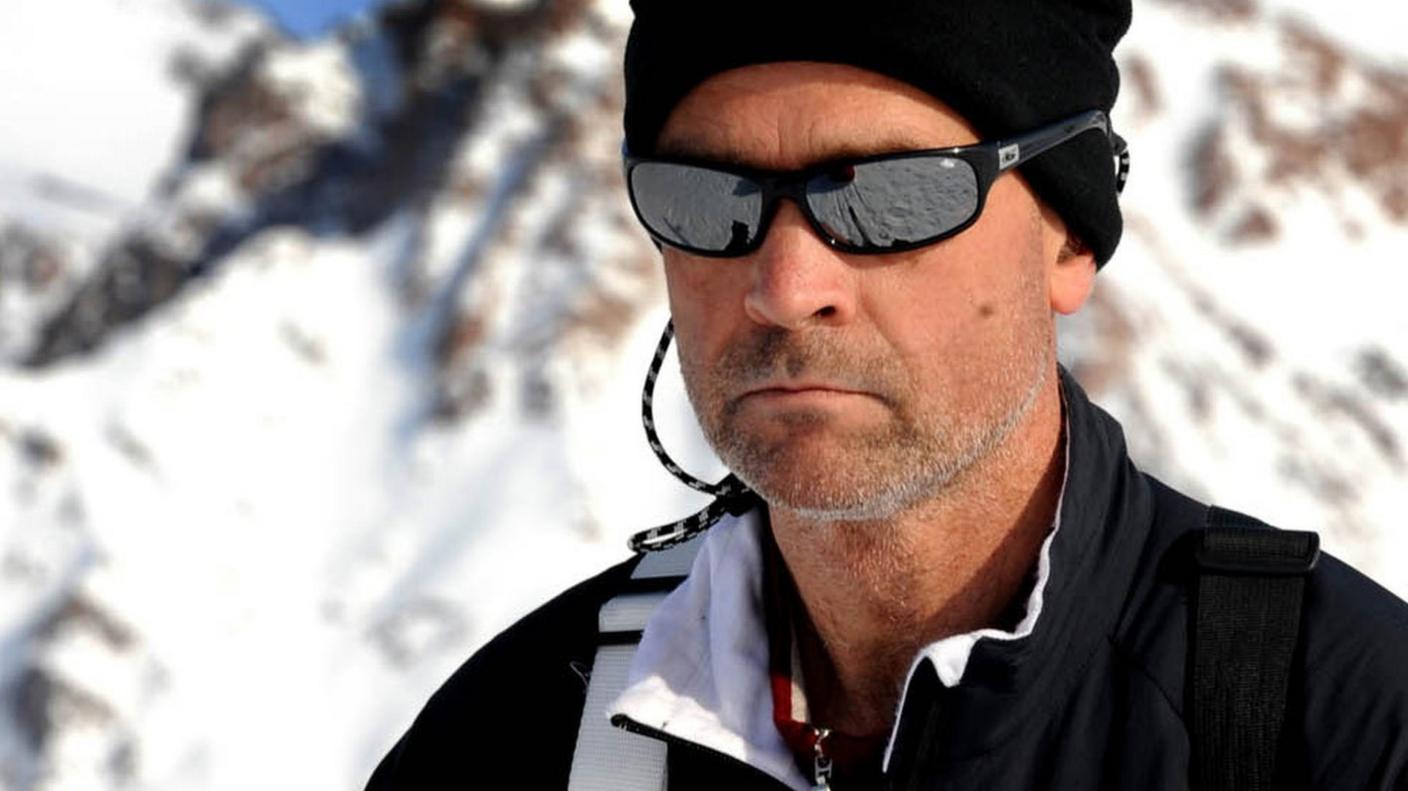Explorer Henry Worsley dies attempting Antarctic crossing
- Published
Henry Worsley - pictured earlier in his trip - posted a message saying he had run out of physical endurance
Explorer Henry Worsley has died after developing a serious infection as he tried to cross Antarctica unaided.
The ex-Army officer, from London, had been rescued 30 miles shy of his goal.
His wife Joanna said she felt "heartbroken sadness" after he died of "complete organ failure".
Mr Worsley, 55, was trying to complete the unfinished journey of his hero, Sir Ernest Shackleton, 100 years later, but in his final audio message, he said: "My summit is just out of reach."
In that last broadcast, sent from Antarctica on Friday, external, he told supporters: "When my hero, Ernest Shackleton, was 97 miles from the South Pole on the morning of January the 9th 1909, he said he'd shot his bolt.
"Well, today I have to inform you with some sadness that I too have shot my bolt."
Mr Worsley said his journey had ended because he did not have the ability to "slide one ski in front of the other".
"I will lick my wounds, they will heal over time and I will come to terms with the disappointment," he added.
'Grinding down'
Prince William has led the tributes to Mr Worsley, who was raising money for the Endeavour Fund, a charity which helps wounded servicemen and women and is managed by the Royal Foundation of the Duke and Duchess of Cambridge and Prince Harry.
The duke, who was patron of the expedition, said he and Prince Harry had lost a friend, as he paid tribute to Mr Worsley's "selfless commitment" to fellow soldiers.
"He was a man who showed great courage and determination and we are incredibly proud to be associated with him," he said.
The princes pledged to ensure Mr Worsley's family, which includes his two children, Max, 21, and Alicia, 19, received the support needed "at this terribly difficult time".
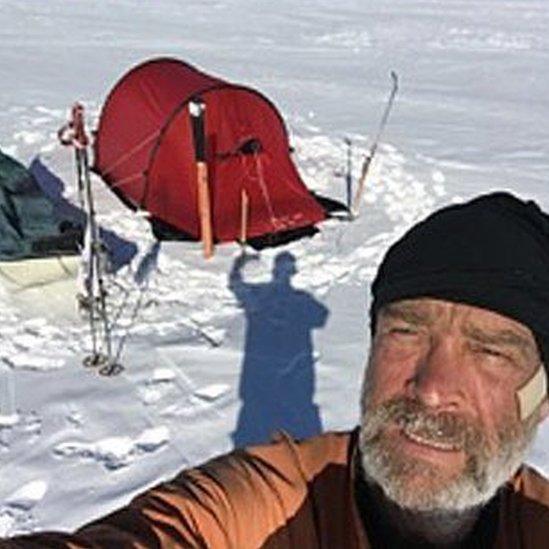

Mr Worsley was airlifted off the ice on Saturday, on day 71 and 913 miles (1,469km) into his trek.
Initially, it was thought he was dehydrated and malnourished. It was only discovered he was suffering from a serious infection - bacterial peritonitis - when he was treated at Union Glacier base camp.
He was then flown to a hospital in Punta Arenas, Chile, to undergo surgery but died on Sunday.
Peritonitis is inflammation of the peritoneum, the thin layer of tissue that lines the inside of the abdomen. According to the NHS, external, most cases come from injury or infection in another part of the body.
Henry Worsley explains why he is crossing Antarctica unaided
On Instagram, David Beckham said, external he was "lucky to have met Henry", who had "served our country for so many years".
And adventurer Bear Grylls tweeted, external: "We are devastated by this loss. One of the strongest men & bravest soldiers I know. Praying for his special family."
Gen Sir Nick Carter - the head of the Army and a close friend of the explorer - said Mr Worsley had "extraordinary traits of courage and determination" but he did it all with the "most extraordinary modesty and humility".
Polar explorer Pen Hadow told the BBC that Mr Worsley, by going solo with no resupply, had embarked on the "hardest form of travel quite possibly on the surface of the earth".
He said his body would not have had enough time to replenish itself during the rest periods, which meant "losing a small percentage of your capability every day". But he said the "single hardest challenge" on such a journey was "managing your mind-set".
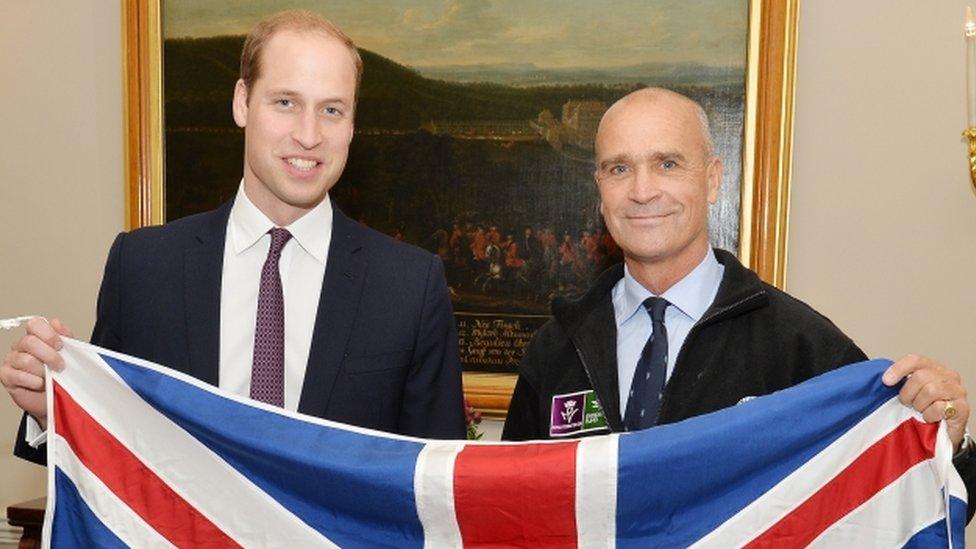
The Duke of Cambridge said Henry Worsley showed "great courage"
Mr Worsley began the coast-to-coast trek in November, pulling a sledge containing his food, tent and equipment.
The plan was to cross the continent "unassisted and unsupported" - with no supply drops or help from dogs or any other source.
The first solo and unsupported crossing of the continent was achieved by Norwegian Borge Ousland in 1997. But Mr Worsley's record attempt differed as Mr Ousland used a kite to help drag his supply sled.
British explorer Felicity Aston became the first woman to cross the Antarctic alone in January 2012 but she had supply drops.

Profile: Henry Worsley
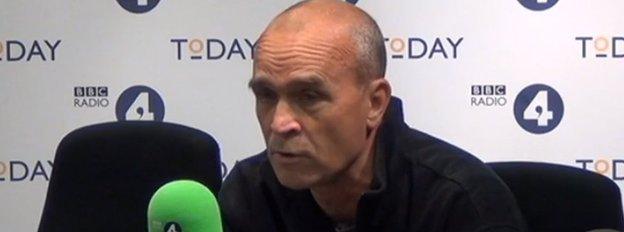
Henry Worsley retired from the British army having attained the rank of lieutenant colonel in October 2015 after a 36-year career, serving with the Royal Green Jackets and later the Rifles.
His military career saw him awarded an MBE for distinguished service on operations in Northern Ireland, Bosnia, Kosovo and Afghanistan.
Since childhood he had a passionate interest in the lives of the Antarctic explorers of the Edwardian era - Sir Ernest Shackleton, Captain Robert Scott and Roald Amundsen.
In 2008, Mr Worsley led an expedition to commemorate the centenary of Shackleton's "Nimrod" journey, which pioneered a route through the Transantarctic Mountains to a point just 97 miles (156km) short of the South Pole.
To commemorate the centenary of Scott's and Amundsen's expeditions, Mr Worsley returned to Antarctica in 2011, leading a team of six soldiers retracing the original 1912 journey to the South Pole.
He led the Amundsen route - a 900-mile (1,448km) unsupported journey - and in doing so, became the only person to have completed the classic Antarctic routes of Shackleton, Scott and Amundsen.
Source: Endeavour Fund, external

Mr Worsley's latest expedition again followed in the footsteps of his idol Sir Ernest Shackleton, who set off to cross Antarctica in 1914. The ill-fated trip saw his ship Endurance became trapped in ice for 10 months before it sank, but not one of the expedition's members died.
Mr Worsley was a distant relative of Frank Worsley, the captain of the Endurance.
Sir Ernest Shackleton's granddaughter Alexandra said Mr Worsley's death would be a "huge loss to the adventuring world".
"The whole point of this one was that Henry was doing it on his own. I suppose you could say he was doing more and more adventurous and interesting things," she said.
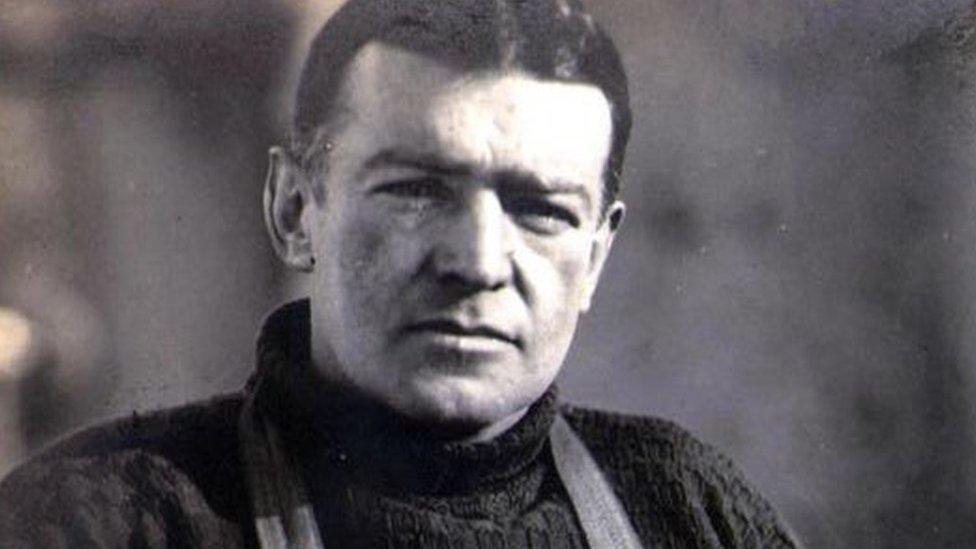
Sir Ernest Shackleton attempted to cross Antarctica in what became known as the Endurance mission
Mr Worsley had passed his target of raising £100,000, and the Endeavour Fund said in a statement, external that it was "devastated" by his death.
In October, he told the BBC he expected to lose two stone (12.7kg) during the challenge.
He said his journey should take 75 days and he would take enough food for 80 days.
Asked if he was "mad" to take on the challenge, he said: "What will drive me on is raising money for these wounded soldiers."
- Published25 January 2016
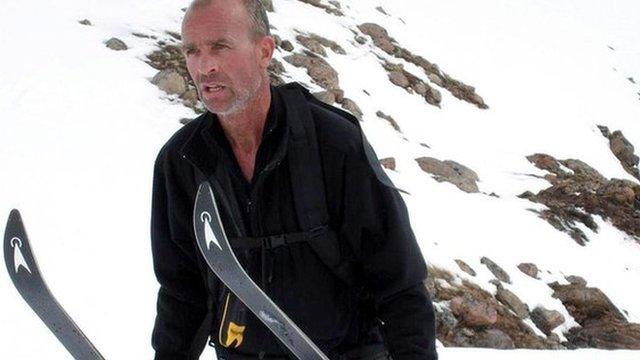
- Published19 October 2015
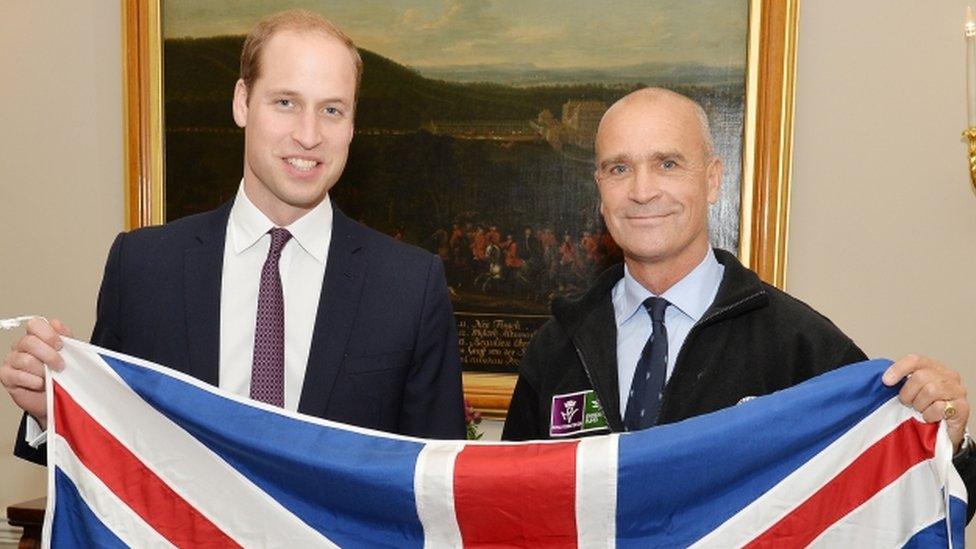
- Published19 October 2015
